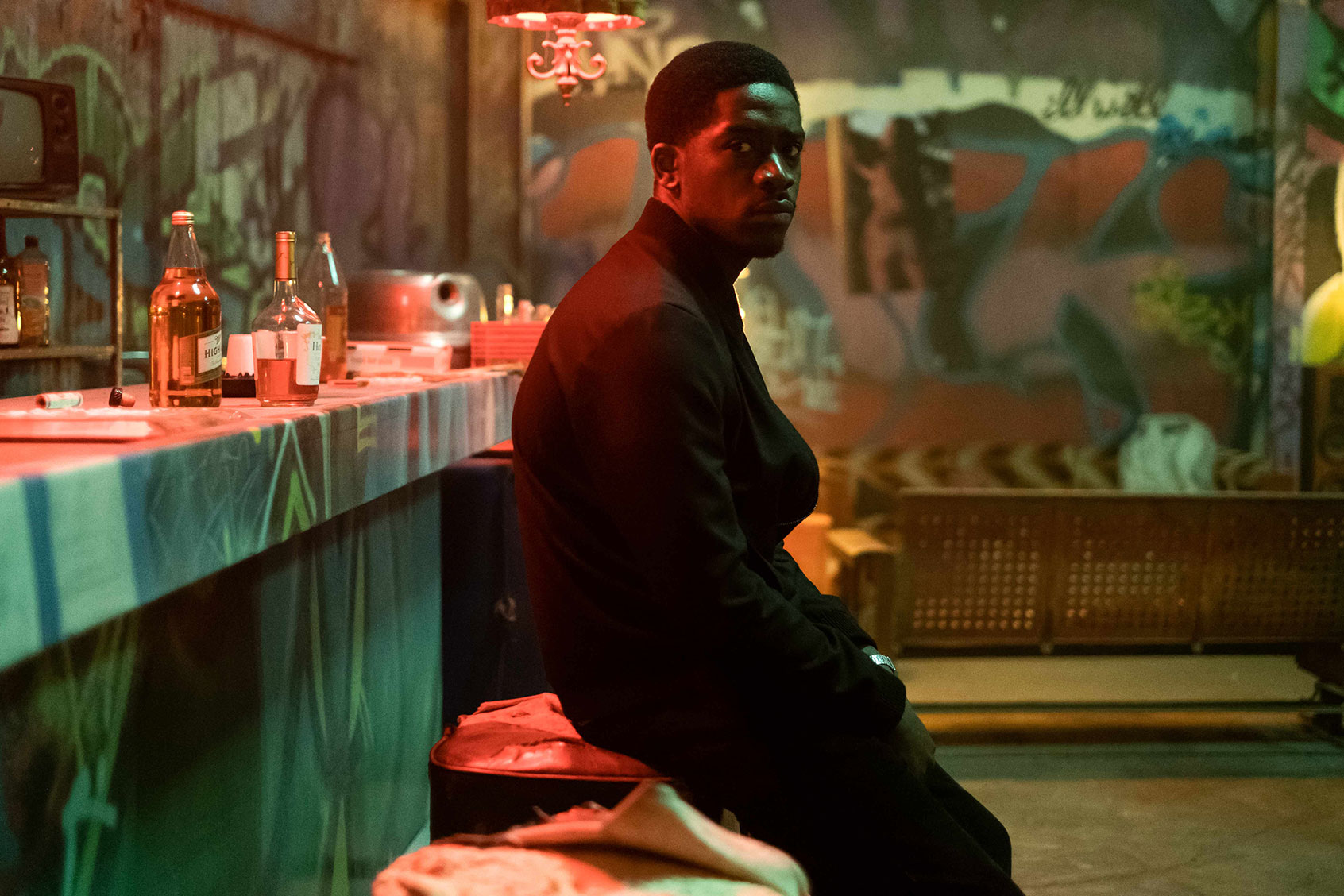The final episode of FX’s “Snowfall”aired this week, marking the end of a creative, engaging and overall excellent television show, that made all of its viewers better, and hopefully policy makers paid attention.
“Snowfall” debuted back in 2017. We meet Franklin Saint – portrayed by Hollywood newcomer at the time Damson Idris – a young, handsome, charismatic teenager with the skill set to accomplish anything. And that is precisely what we watched him perform over the last six years – as he builds a crack empire that nets him a real estate empire worth millions of dollars and $73 million in cash, the American dream.
The fictional Franklin Saint is loosely based on the drug lord Freeway Ricky Ross, not the rapper. Freeway Ricky Ross, an LA guy, ran a drug empire worth hundreds of millions of dollars, used the proceeds to buy real estate and was alleged to be getting the drugs from the CIA – who was, in turn, using the funds to fund Ronald Reagan’s war in Nicaragua. All just like Franklin Saint. There are some stark differences between the two; Saint was an avid reader from day one, while Ross was illiterate until he went to prison. Saint did not end up in jail, but became an delusional alcoholic bum. Ross exited the prison and is now an author and sought-after motivational speaker.
There’s a collection of brilliantly crafted storylines in “Snowfall” that can be analyzed and broken down for days. However, I want to focus on the three that speak to me and my lived experience the most. The unified journeys and arcs of Franklin, Wanda (Gail Bean) and Leon (Isiah John) perfectly depict a version of the Black American experience in America that has been going on for far too long. Anybody that has spent time in any hood knows Franklin, Wanda, and Leon – and if you stuck around long enough, you will see what society does to Black children.
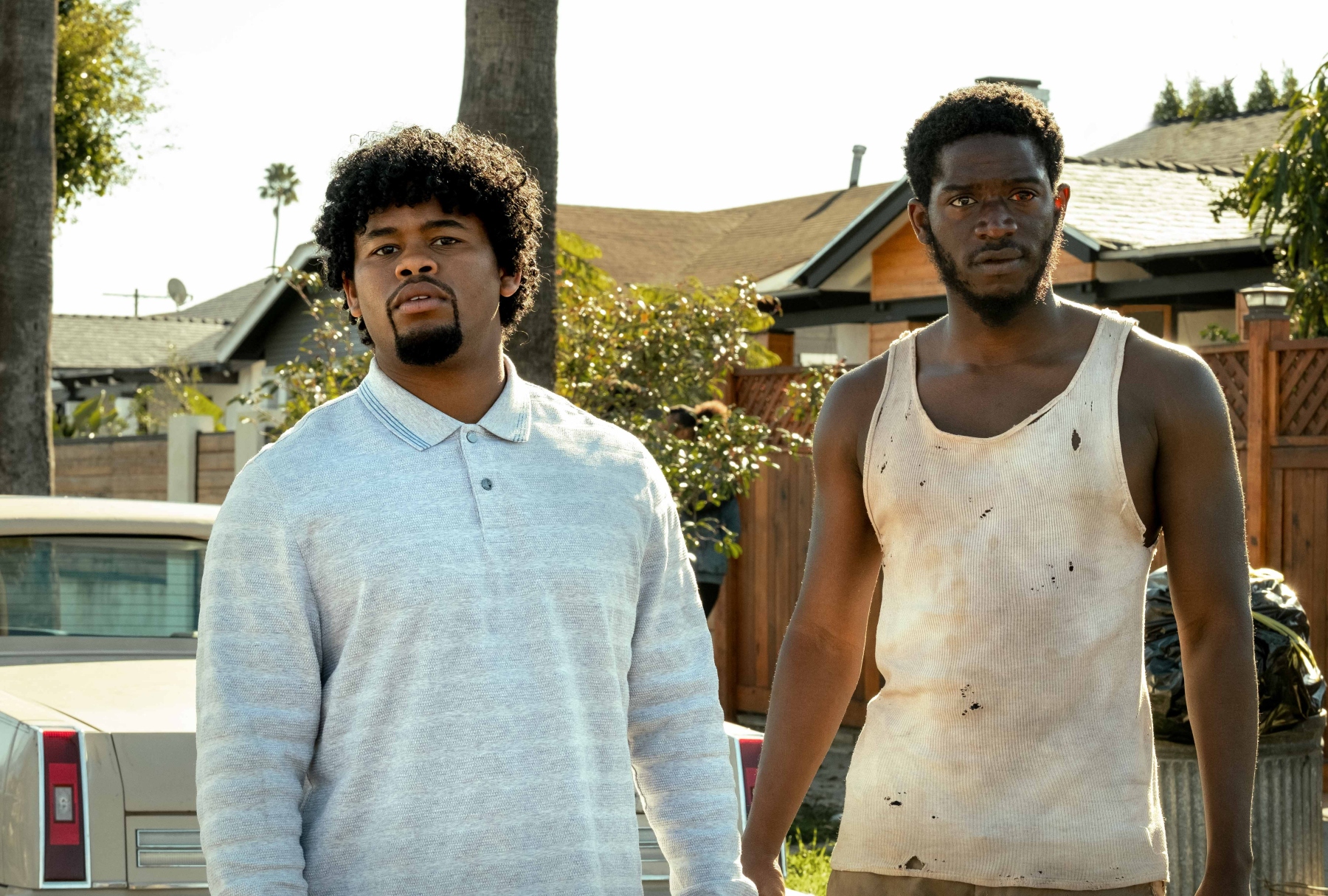 Isaiah John as Leon and Damson Idris as Franklin Saint in “Snowfall” (Ray Micksaw/FX)Leon is the neighborhood knucklehead, rough around the edges, and always the kind of guy who would make your grandmother say things like, “Stay away from that boy. He’s going to jail.” Wanda is the petite, big-spirited party girl that was always so easy to love. The kind of girl you meet in the second grade on the first day and have you dreaming about your wedding day by week’s end, even before you had your first kiss. And then there’s Franklin – the innovator, the quick thinker, the kid who always has an excellent plan, accompanied with the skill set to execute. When you meet a guy like Franklin you just know that he will have a successful life.
Isaiah John as Leon and Damson Idris as Franklin Saint in “Snowfall” (Ray Micksaw/FX)Leon is the neighborhood knucklehead, rough around the edges, and always the kind of guy who would make your grandmother say things like, “Stay away from that boy. He’s going to jail.” Wanda is the petite, big-spirited party girl that was always so easy to love. The kind of girl you meet in the second grade on the first day and have you dreaming about your wedding day by week’s end, even before you had your first kiss. And then there’s Franklin – the innovator, the quick thinker, the kid who always has an excellent plan, accompanied with the skill set to execute. When you meet a guy like Franklin you just know that he will have a successful life.
The Franklins of our neighborhoods typically tend to lack skills in fighting, which is why they always become best friends with the Leons. The Leons are as fascinated with the Franklins’ intellectual abilities as the Franklins are fascinated with the Leons’ ability to put their foot in someone’s ass. The Leons of our neighborhoods are also the ones who are most likely to settle with the Wandas because they represent everything a project boy needs in a partner – from the sassiness to the understanding of how the streets work, to their uncanny ability to surprise you, just when you thought you had them all figured out. The Franklins can’t settle with anybody from the neighborhood because they overthink love and are constantly searching for something bigger, better and far away from their origin. Funny moments creep in when the Wandas and Leons link up to laugh at the terrible romance decisions made by the hyper-ambitious Franklins. This was our All-American friend group.
Enter crack. Crack is the other official character I should have mentioned at the top. It should be mentioned in every piece because that drug single-handedly destroys our friend group on screen and continues to detonate generations in real life.
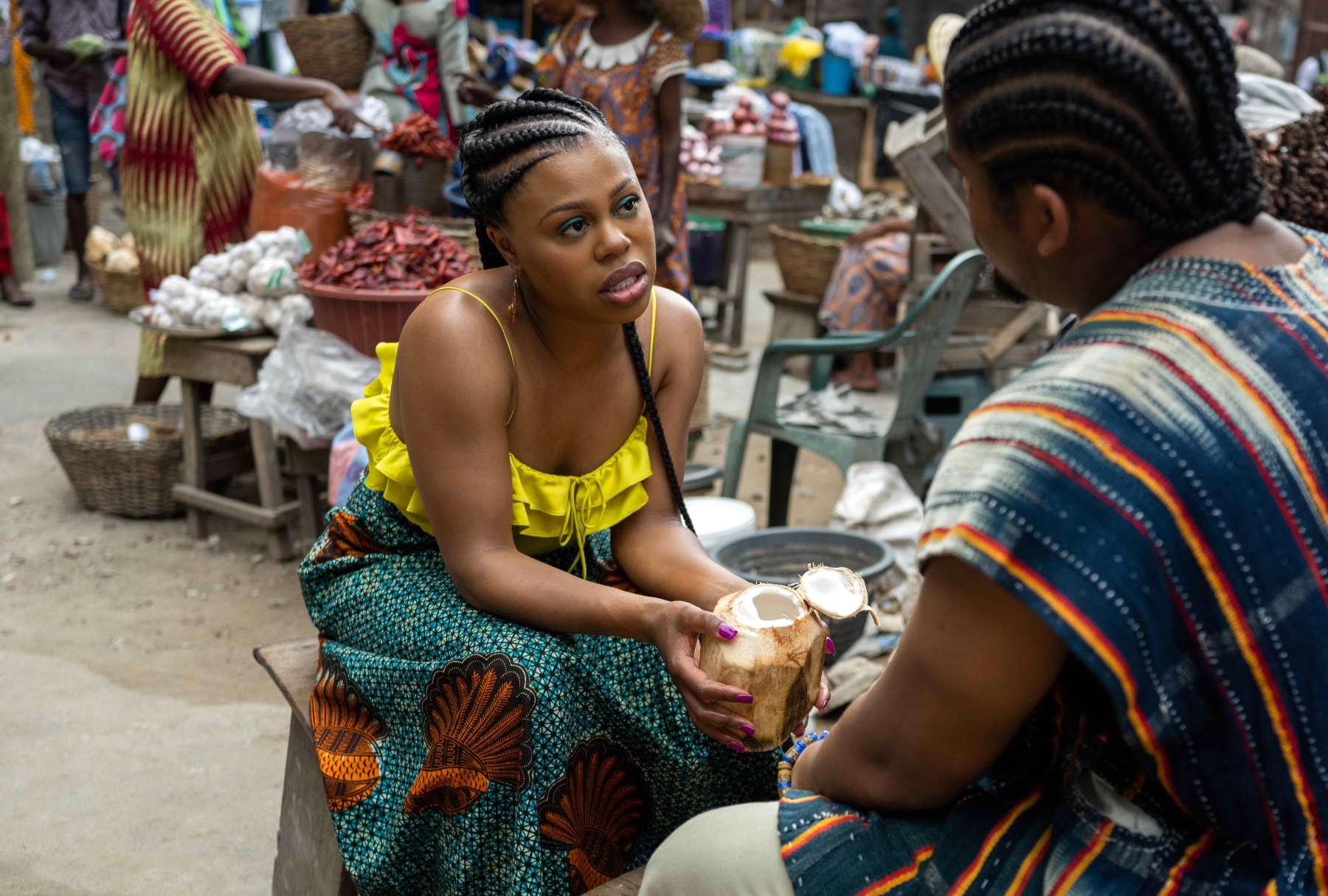 Gail Bean as Wanda and Isaiah John as Leon in “Snowfall” (Joe Ablas/FX)Throughout six seasons, Leon, our beloved knucklehead, goes from being a street-savvy brawler with a mean right hook to a murderer and drug kingpin, two titles that are almost impossible to bounce back from. And Wanda goes from the cute round-the-way girl to a toothless crack addict who steals everything that wasn’t bolted down while burning every bridge around her. Our Franklin doesn’t make it to Harvard or Yale, two places that should have proudly accepted him. Instead, he becomes the orchestrator of the whole ordeal, the guy responsible for making Leon the kingpin and murderer and Wanda the crackhead. We watch Franklin’s transformation – and it has screamed authentic every season, as he goes from making a couple of extra to I’m running a legit business, to the need to have it all and the willingness to kill any and everybody for it.
Gail Bean as Wanda and Isaiah John as Leon in “Snowfall” (Joe Ablas/FX)Throughout six seasons, Leon, our beloved knucklehead, goes from being a street-savvy brawler with a mean right hook to a murderer and drug kingpin, two titles that are almost impossible to bounce back from. And Wanda goes from the cute round-the-way girl to a toothless crack addict who steals everything that wasn’t bolted down while burning every bridge around her. Our Franklin doesn’t make it to Harvard or Yale, two places that should have proudly accepted him. Instead, he becomes the orchestrator of the whole ordeal, the guy responsible for making Leon the kingpin and murderer and Wanda the crackhead. We watch Franklin’s transformation – and it has screamed authentic every season, as he goes from making a couple of extra to I’m running a legit business, to the need to have it all and the willingness to kill any and everybody for it.
And what the people who glamorize drug dealing don’t tell you is that you never make it out.
Like Franklin, I was a child of the crack era and far too familiar with the spoils and ills that surround the industry. I remember seeing what the drug did to my dad, who started selling it and eventually used it. The hells he crawled through to reach sobriety made me vow to never even think about selling the drug all the way up until I found myself chopping up small pieces of rock and stuffing them into vials as fast as I could sell them. The business was highly lucrative and quickly decimated my moral compass to the point where I couldn’t see how the drug was ruining everyone in my community or destroying me in the process – the only visible thing was the money.
I’ve never run a million-dollar organization like Franklin; however, the mentality he slowly grows into is so familiar that the fictional show often scared me. Most of my friends who were part of the drug trade for a certain amount of time were thinking about and attempted suicide, including me. And what the people who glamorize drug dealing don’t tell you is that you never make it out. I haven’t touched an illegal drug in almost two decades and am still paranoid. I still have nightmares, wake up in cold sweats, have trust issues, and most of my closest friends are gone and never coming back. I didn’t make it out, neither did our friend group.
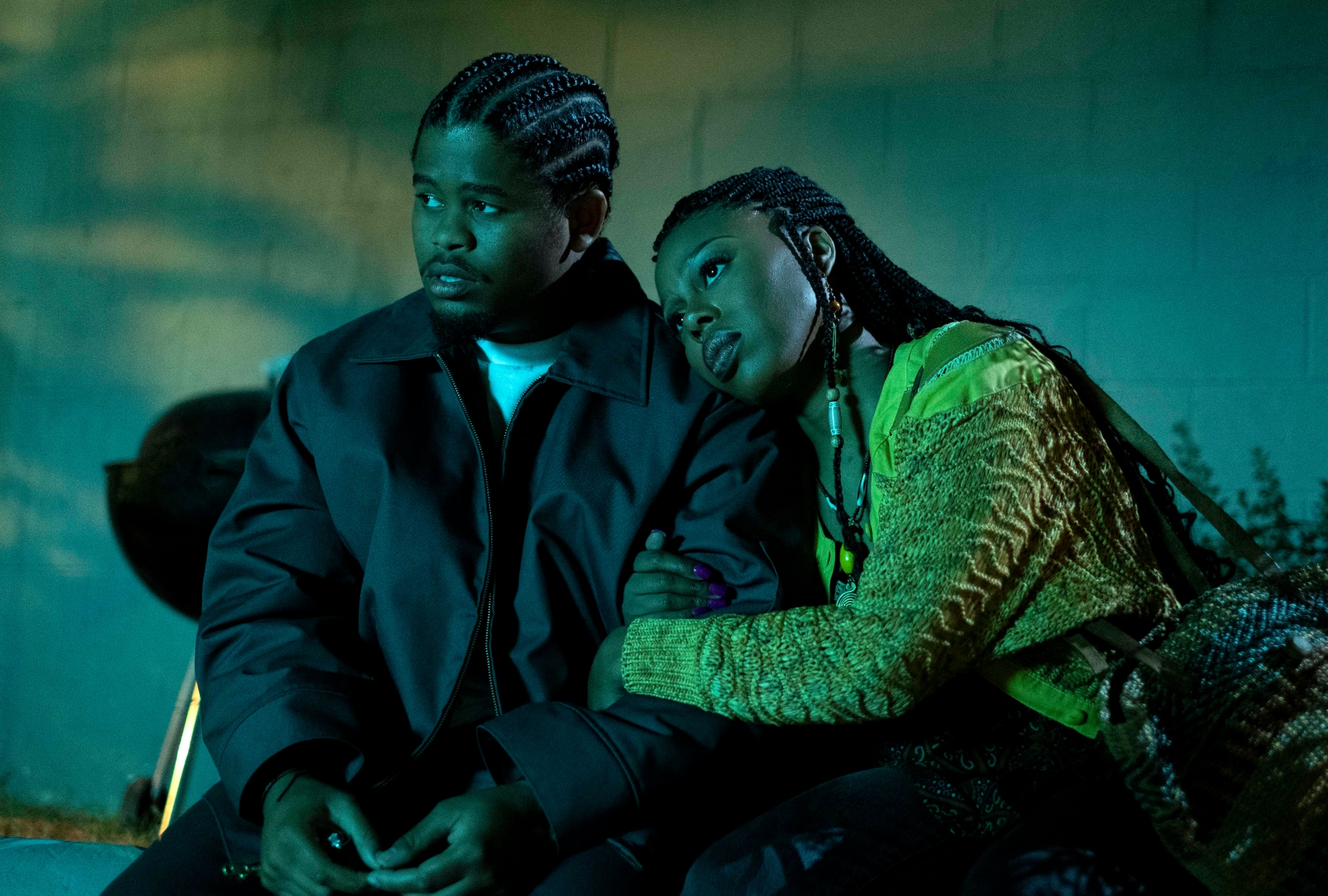 Isaiah John as Leon and Gail Bean as Wanda in “Snowfall” (Ray Mickshaw/FX)Wanda beats her addiction, purchases a beautiful set of veneers, moves to Ghana and marries Leon, the love of her life. But she does not win, and she does not make it out. When Wanda returns to America from Ghana, her remaining family members will not speak to her, the neighborhood she loved is destroyed, and the remaining citizens cannot get past the person she was to see who she had become. As a woman who worked at a shelter with others suffering from addiction and people experiencing homelessness – snickers of “Look at crackhead Wanda” still linger in the background. Wanda has to leave LA and even America for her sanity. Her husband, Leon, is initially reluctant to travel with her.
Isaiah John as Leon and Gail Bean as Wanda in “Snowfall” (Ray Mickshaw/FX)Wanda beats her addiction, purchases a beautiful set of veneers, moves to Ghana and marries Leon, the love of her life. But she does not win, and she does not make it out. When Wanda returns to America from Ghana, her remaining family members will not speak to her, the neighborhood she loved is destroyed, and the remaining citizens cannot get past the person she was to see who she had become. As a woman who worked at a shelter with others suffering from addiction and people experiencing homelessness – snickers of “Look at crackhead Wanda” still linger in the background. Wanda has to leave LA and even America for her sanity. Her husband, Leon, is initially reluctant to travel with her.
Leon undergoes a fantastic transformation – by evolving into a different person through literature that highlight the Black struggle and, ultimately, Black liberation. Once examining his role in tearing down his community, he becomes conflicted and starts to become the change he needs before going down the wrong path. As stated, Leon marries Wanda, which is highly inspiring. And the way he supports Wanda through her battle with addiction madkesviewers love them on a completely different level. Leon made his money but can’t get away from the community he helped destroy – a community that will continue to be destroyed because even though he’s not the guy selling drugs anymore, his actions paved the way for the next kingpin.
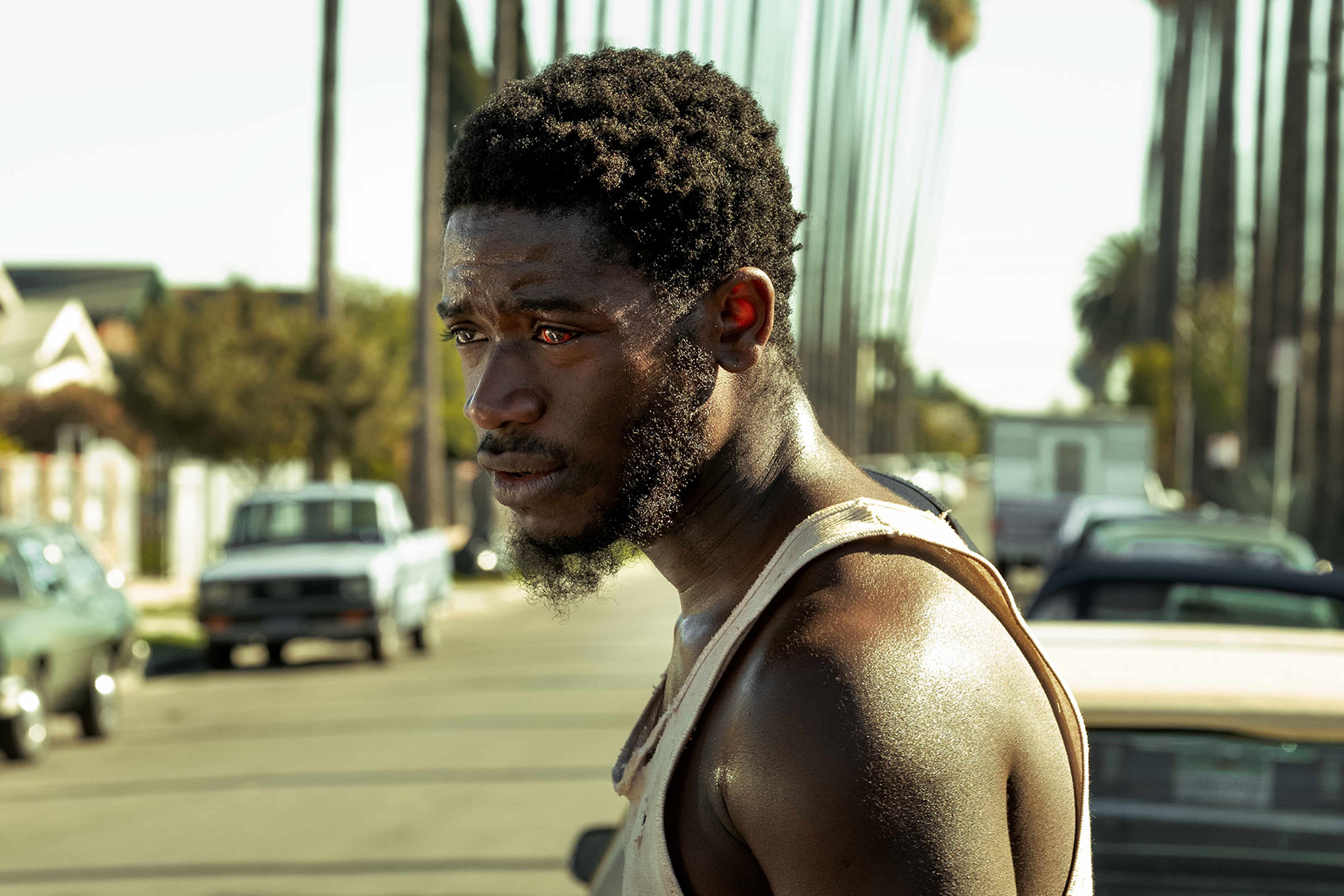 Damson Idris as Franklin Saint in “Snowfall” (Ray MIcksaw/FX)
Damson Idris as Franklin Saint in “Snowfall” (Ray MIcksaw/FX)
Franklin Saint goes from dreaming of financial freedom and ends up with freedom from no finances, freedom from no family, freedom from dreams, the kind of freedom attached to nothingness.
“Snowfall” viewers who’ve invested so much time in Franklin and his wealth – and even looked past where his ill-gotten money came from in addition to his murderous ways, still rooted for him because he was being manipulated by the U.S. government. We knew he could have conquered the world if he was white, and that’s why we’re crushed to see that he ends up homeless, addicted and out of his mind. Franklin has lost everything, his funds, his family, and his sanity. In the pilot, he told his girlfriend that he dreamed of freedom, and bragged of finding freedom in the finally. Franklin Saint goes from dreaming of financial freedom and ends up with freedom from no finances, freedom from no family, freedom from dreams, the kind of freedom attached to nothingness.
Franklin, Leon and Wanda have all lost the ability to dream. And that is what the drug game does. It robs you of your family and strips away your ideas until nothing is left and we are a smart enough country to know this, yet we still allow it to continue with the ongoing drug war, the same stigmas, limited support for addicts and no support for former dealers, the combination of all equaling the perfect American horror story. As a country we failed, are failing and will continue to fail. “Snowfall” shows you why.
As a collective, viewers should commend John Singleton, FX, and the entire cast and crew for this fearless piece of art. Many people know that the CIA allegedly played a role in the drug trade, but Singleton was brave enough to inject this hard truth into the mainstream, challenging many people who couldn’t imagine how evil our government can be to its poor Black residents.
